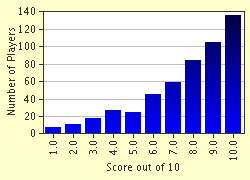Quiz Answer Key and Fun Facts
1. Sherlock Holmes first appeared in Sir Arthur Conan Doyle's "A Study in Scarlet" in a magazine, Beeton's Christmas Annual, in 1887. Hercule Poirot featured in Agatha Christie's first novel in 1920. What was its title?
2. All detectives need a sidekick. Sherlock Holmes had Dr Watson. Who was Hercule Poirot's sidekick?
3. All detectives also need a policeman that they can outwit. Sherlock Holmes had Inspector Lestrade. Who did Poirot have?
4. Sherlock Holmes had an older brother, Mycroft, whom Sherlock acknowledges as smarter but lazier. Hercule Poirot also has a brother, a twin no less. What was his name?
5. Another interesting parallel is that both Sherlock Holmes and Hercule Poirot only ever had strong feelings for one woman. For Poirot, it was the Countess Vera Rossakoff. Who was the only woman for whom Holmes had an attachment?
6. Just as Sir Arthur Conan Doyle tired of Sherlock Holmes, so did Agatha Christie tire of Hercule Poirot. Doyle killed Holmes off in "The Final Solution". In which book did Christie kill off Poirot?
7. Both Holmes and Poirot chose rather unusual occupations in their retirement. Holmes took up beekeeping. What did Poirot choose?
8. Holmes and Poirot do differ, however, in their method of solving crimes. Which of the following does Poirot regard as the key to problem-solving?
9. Another difference between Poirot and Holmes is that Poirot does not have any particular adversary whereas Holmes has an arch-enemy who appears or is mentioned in a number of stories. Who is this master criminal?
10. And finally, Sir Arthur Conan Doyle based his detective on a real person, whereas Hercule Poirot was pure invention. Upon whom did Doyle base Sherlock Holmes?
Source: Author
MotherGoose
This quiz was reviewed by FunTrivia editor
agony before going online.
Any errors found in FunTrivia content are routinely corrected through our feedback system.

